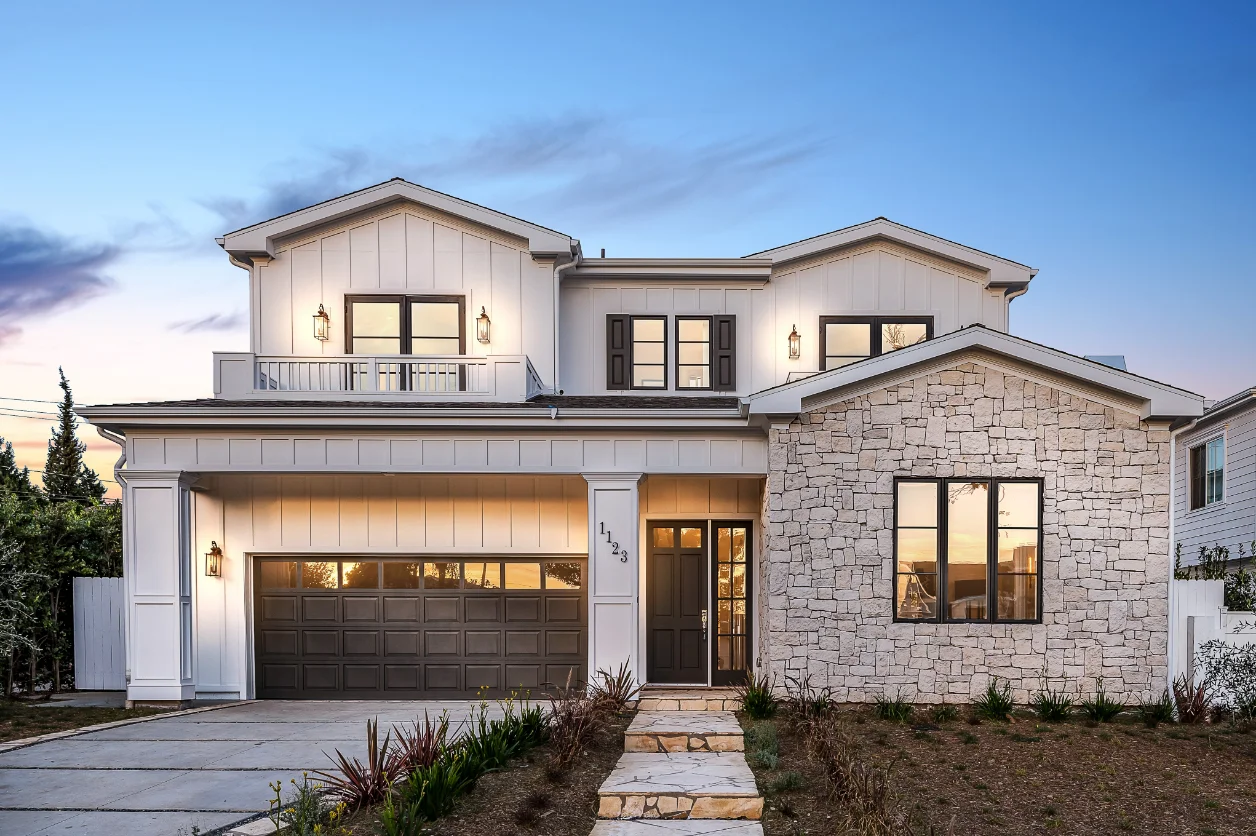
This post is written by Amandeep Kaur, a trainee of Symbiosis Law School, Pune. The author in this short article has discussed the basic concepts of mortgagor and mortgagee and likewise the rights and liabilities of a mortgagor.

Introduction

Nowadays mortgage is a very typically used word. Each and every single individual has the understanding that if he desires a loan to be approved, he needs to pay some security and for that, he needs to mortgage his residential or commercial property with a bank. Mortgagor and mortgagee are the parties who have an essential function to play throughout mortgage of a residential or commercial property. Various statutes readily available in India handle a mortgage. Following legislation deal with mortgage:

The Transfer of Residential Or Commercial Property Act, 1882- Sections 58-104, which are mentioned in Chapter IV offers with the substantial part of mortgage.
The Civil Procedure Code, 1908- The procedural part of mortgage of stationary residential or commercial property is dealt in Chapter XXXIV of CPC.
Indian Contract Act, 1872- Any agreement related to mortgage and its basic principles are pointed out in the Indian Contract Act of 1872.
When do rights & liabilities of a mortgagor occur?
The rights and liabilities of a mortgagor arise throughout a mortgage. A loan may be protected or unsecured. Where a loan is provided just on the basis of debtor's pledge to pay (e.g. on promissory-note), such loans are called as unsecured loans. But, where the lender takes security from the debtor for the repayment of his money, the loan is understood as secured loans. One such way to secure loans is mortgage. Section-58( a) of the Transfer of Residential Or Commercial Property Act, 1882 has actually specified mortgage as the transfer of an interest in a particular stationary residential or commercial property for protecting:
The payment of cash provided to him or to be given through loan, or
An existing or future debt, or
The performance of an engagement which may offer increase to a monetary liability.
Who is a mortgagor?
The person who has moved the interest in a particular stationary residential or commercial property is called mortgagor. For example, A wants a loan from B. Now B desires his total up to be secured which he is going to loan A. A will transfer the interest in a specific stationary residential or commercial property to B and will offer him the authority of offering it in case A is not able to repay B's amount. Here A is the mortgagor.
Who is a mortgagee?
The transferee or person in whose favour the interest is being transferred is called mortgagee. In the above-given example, the person who is providing cash i.e. B is the mortgagee.
What is mortgage-money?
The principal quantity which is provided as loan and the interest quantity which mortgagor will pay to mortgagee along with the principal quantity. Sum of both the principal amount and interest is known as mortgage-money.
What is a mortgage deed?
It is an instrument by which the transfer of interest in a particular unmovable residential or commercial property is affected. It is a kind of contract which legally binds both the mortgagor and mortgagee.
Different type of mortgage
There are six type of mortgage which are acknowledged under the Transfer of Residential Or Commercial Property Act, 1882. They are gone over in the act from section 58( b) -58( g). Following are the different sort of mortgage:
Simple Mortgage [section-58( b)] Mortgage by conditional sale [section-58( c)] Usufructuary Mortgage [section-58( d)] English Mortgage [section-58( e)] Mortgage by deposit of title deeds [section-58( f)] Anomalous Mortgage [section-58( g)]
Click Here
Rights of Mortgagor
Every mortgage-deed leaves a right to the mortgagor and a matching liability for mortgagee and vice versa. Following are the rights offered to a mortgagor offered by the Transfer of Residential Or Commercial Property Act, 1882:
Right to redemption
Right to transfer mortgaged residential or commercial property to a 3rd party rather of retransferring
Right of examination and production of files
Right to accession
Right to enhancements
Right to a renewed lease
Right to approve a lease
Right to Redemption (section-60)
It is one of the most important rights of a mortgagor given under section of the Act. This best puts an end to mortgage by returning the residential or commercial property of mortgagor. The right to redeem more grants three rights to the mortgagor:
Right to end mortgage deal
Right to transfer mortgaged residential or commercial property to his name
To reclaim ownership of residential or commercial property in case of shipment of possession
When it comes to Noakes & Co. vs. Rice (1902) AC 24, Rice was a dealership who mortgaged his residential or commercial property, property and goodwill to N subject to the arrangement that if R paid back the entire amount, the residential or commercial property would be moved back to his name or any other person's. A covenant was connected that specified whether the quantity is due, R would just offer Malt alcohol by N in his facilities. Because of this covenant, R had difficulty in redemption and it didn't provide him absolute right over his residential or commercial property. House of Lords held that anything which clogs this right is bad and they created the idea that 'once a mortgage constantly a mortgage' and said that mortgage might never be irreducible.
This principle was included to secure the interest of a mortgagor. Any condition or provision which avoids a mortgagor from redeeming his mortgaged residential or commercial property is a blockage on the right of redemption. The right to redemption continues even though the mortgagor fails to pay back the loan quantity to mortgagee. When it comes to Stanley v. Wilde, (1899) 2 Ch 474, it was held that any provision pointed out in the mortgage-deed which has an effect of preventing or hampering the right to redemption is void as an obstruction on redemption.
Exceptions to the right- The right to redeem has three exceptions. It can be snuffed out under the following cases:
By the act of celebrations

By operation of law
By decree passed by the court
Obligation to transfer to the 3rd party instead of moving it to mortgagor (section-60A)

This right was included in the Act by Amendment Act of 1929. This best provides the mortgagor with authority to ask the mortgagee to appoint the mortgage debt and move the residential or commercial property to a 3rd person directed by him. The function of this right is to help the mortgagor to settle the mortgagee by taking a loan from a 3rd person on the exact same security.
Right to examination and production of files (section-60B)
This section is likewise placed by the Amendment Act of 1929. It is the right of mortgagor to ask mortgagee for the production of copies of files of the mortgaged residential or commercial property in his belongings for examination on notification of sensible time. The expenditures sustained on production or copies of files or travel costs of a mortgagee are to be paid by the mortgagor. This right is readily available to the mortgagor just as long as his right to redeem exists.
Right to Accession (section-63)
Basically, accession means any addition to residential or commercial property. According to this ideal mortgagor is entitled to such accession to his residential or commercial property which remains in the custody of mortgagee. There are 2 types of accession:
Artificial accession- It is when mortgagor made some efforts and it increased the worth of land.
Natural accession- The name itself defines i.e. with no manufactured efforts.
In case an accession is made to the residential or commercial property due to the efforts of mortgagee or at his cost and such accession is inseparable, mortgagor, in order to be entitled to such succession, requires to pay the mortgagee the expense of obtaining such accession.
If such different belongings or enjoyment is not possible, the accession needs to be delivered with the residential or commercial property; it is the liability of mortgagor, in the case of an acquisition which is needed to preserve the residential or commercial property from damage, loss or sale, or made with his assent, to pay the appropriate expense thereof, as an addition to the principal cash, with interest at the very same rate as is payable on the principal quantity, or, where no such rate is repaired, at the rate of 9 percent per annum.
Right to Improvements (section-63A)
According to this right if the mortgaged residential or commercial property has actually been enhanced while it remained in possession of mortgagee, then on redemption and in the lack of any agreement on the contrary mortgagor is entitled to such enhancement. The mortgagor is not responsible to pay mortgagee unless:
Improvements made by the mortgagee were to secure the residential or commercial property or with the previous permission of mortgagor.
Improvements were made by the mortgagee with the consent of the public authority.
Right to Renewed Lease (section-64)
If the mortgagor is entitled the mortgaged residential or commercial property is a leasehold residential or commercial property and throughout the duration of mortgage the lease gets renewed then, on redemption the mortgagor is entitled to have the benefit of the brand-new lease. This right is available to the mortgagor unless he participates in any contract to the contrary with mortgagee.
Right to approve a Lease (section-65A)
This right was introduced by the Amendment Act of 1929. Prior to this right, the Transfer of Residential Or Commercial Property Act did not allow a mortgagor to lease out the mortgaged residential or commercial property on his own but just with the consent of mortgagee. Now, a mortgagor has the right to rent out the mortgaged residential or commercial property while he remains in lawful ownership of that residential or commercial property, subject to the following conditions:
All conditions in the lease need to be according to the regional laws and customs to prevent any fraudulent transaction.
No lease or premium will be paid beforehand or guaranteed by mortgagee.
The contract will not include any provision for the renewal of the lease.
Every such lease will enter result within a period of 6 months from the date of its execution.
Where the mortgaged residential or commercial property is a structure, the regard to the lease should not exceed three years in total.
Duties/liabilities of a mortgagor
Together with the rights provided to a mortgagor, the Transfer of Residential or commercial property Act has also conferred some responsibilities on him. Following are the tasks of a mortgagor:
Duty to avoid waste
Duty to indemnify for defective title
Duty to compensate mortgagee
Duty to direct rent of a lease to mortgagee
Duty to avoid waste (section-66)
This section imposes a responsibility on the mortgagor to not to commit any act which leads to the waste of residential or commercial property or any act which decreases the value of the mortgaged residential or commercial property. Waste is divided into 2 classifications:
Permissive waste- A mortgagor who is in possession of the mortgaged residential or commercial property is not responsible to the mortgagee for any small waste.
Active waste- When an act is done which causes significant waste of the residential or commercial property or leads to the reduction in the value of mortgaged residential or commercial property, then the mortgagor will be accountable to the mortgagee.
Duty to indemnify for malfunctioning title
It is the duty of a mortgagor to compensate the mortgagee for a faulty title in the mortgaged residential or commercial property. A faulty title refers to a scenario when a 3rd celebration begins declaring or hinders mortgaged residential or commercial property. It is a liability for the mortgagor to make up for the expenditures sustained by mortgagee for securing the title of that residential or commercial property.
Duty to compensate mortgagee
If the mortgaged residential or commercial property is in possession of mortgagee who is paying all the taxes and other public charges, then it is the duty of mortgagor to compensate mortgagee for sustaining such expenditures. Similarly, when there is no shipment of ownership i.e. the mortgaged residential or commercial property is still in possession of mortgagor, then it is his duty to pay all public charges and taxes levied on it.
Duty to direct lease of a lease to mortgagee
Where the mortgaged residential or commercial property is rented by mortgagor then it is his responsibility to direct lessee to pay the lease, and so on to the mortgagee.
A mortgage-deed creates numerous rights and liabilities for both the parties included i. e. mortgagor and mortgagee. These rights and liabilities were created and consisted of in the Transfer of Residential Or Commercial Property Act in 1882 which is quite old and for that reason is dated. Though changes were made in the Amendment Act of 1929, but no current changes have been made in the chapter of rights and liabilities of mortgagor. This has actually caused various fraudulent transactions as both the mortgagor and mortgagee has actually discovered numerous new methods of tricking each other. Therefore, the need of the hour is to amend the laws and make it more rigid so that no celebration attempts to enter in deceitful deals.








